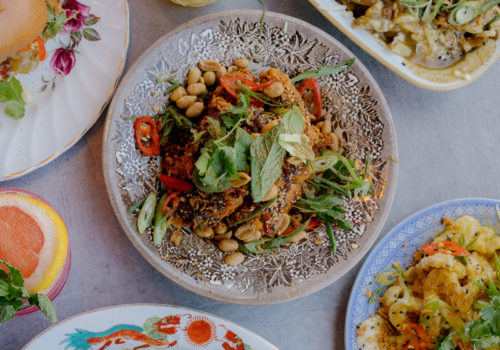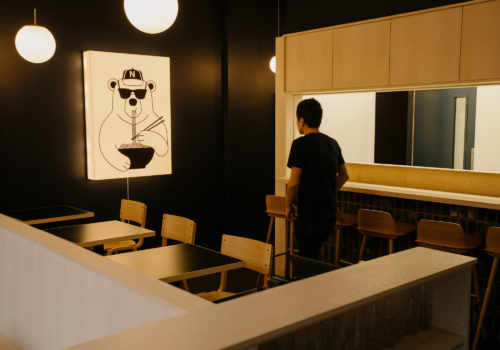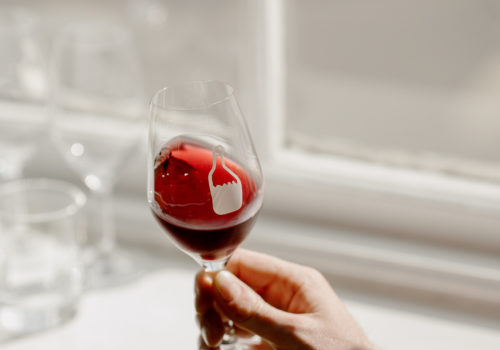Zataar – Dublin’s Middle Eastern ‘Pizza’ joint
Words: Shamim de Brún
Images: George Voronov
Za’atar has two meanings in Arabic: fresh thyme, or a spice mixture containing dried thyme, sumac and sesame seeds. Za’atar the place is owned by the team behind Umi falafel, makers of most banging falafel in the city; this new venture, while sounding a bit left field to anyone who thinks pizza is only Italian, is not. Flatbread or manakish are pillars of Middle-Eastern and Levantine cuisine in particular.
This new spot in Georges Street Arcade makes savoury Middle Eastern flatbread. These are known as manakeesh, lahmacun, lachmagine, Lahm b’ajeen and many other names, depending on the provenance of each recipe.
Value for flavour seekers
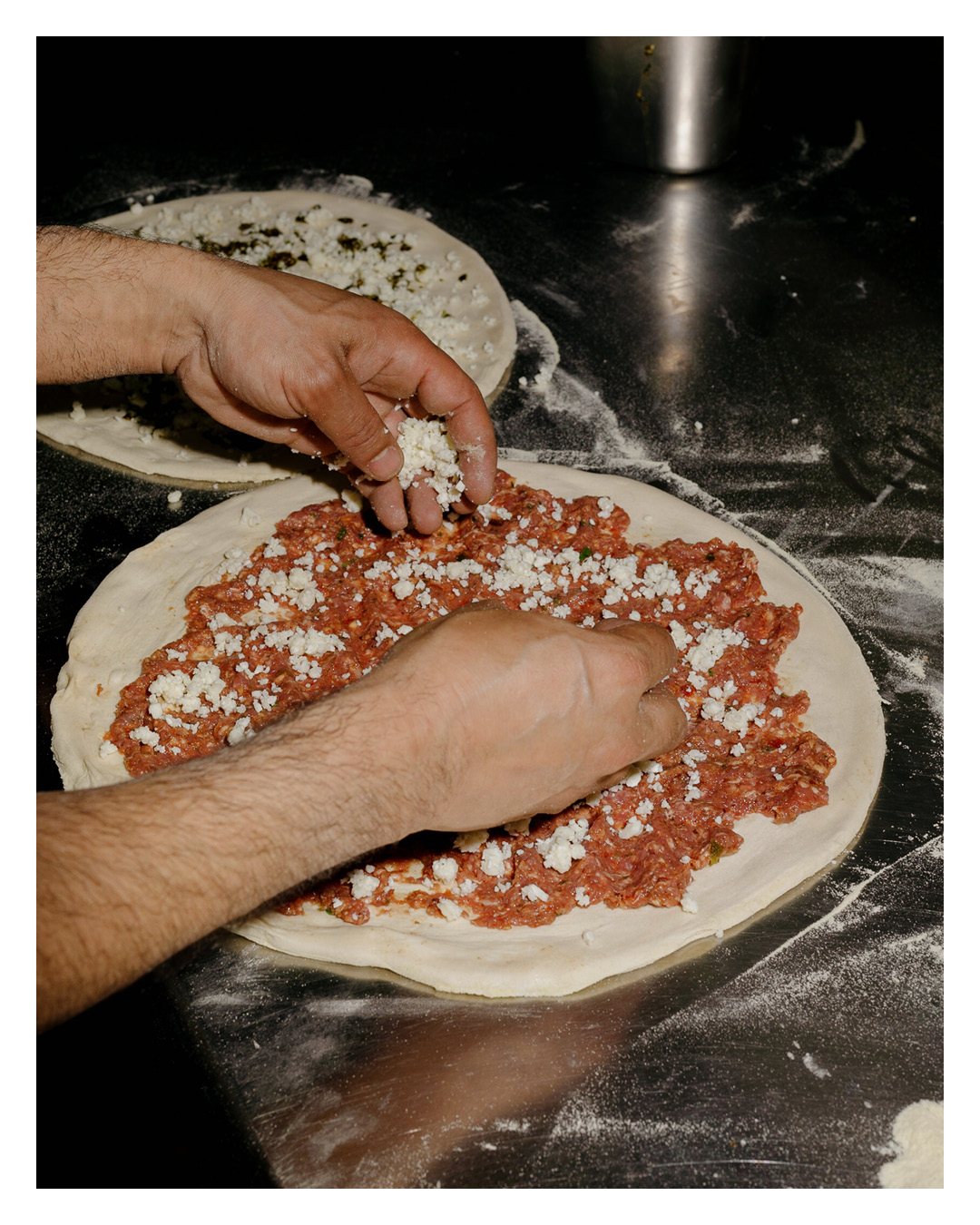
Pizza is excellent. But even with the massive amount of alternative varieties in the country, the flavour can become same samey. This is because Middle Eastern cuisines use aromatic and flavorful spices in the kind of abundance Americans couldn’t even comprehend. Spices like cumin, harissa, cardamon, and Za’atar, for which the place is named, are strong, highly fragrant, savoury spices. Each can be used to create a wide variety of colours and tastes.
If you’re after the hearty feed of a pizza but aren’t feeling the tomato mozzarella calling to you; then this is the kind of place you can go hit that sweet spot and not even break a tenner.
Pretty Much Lunch
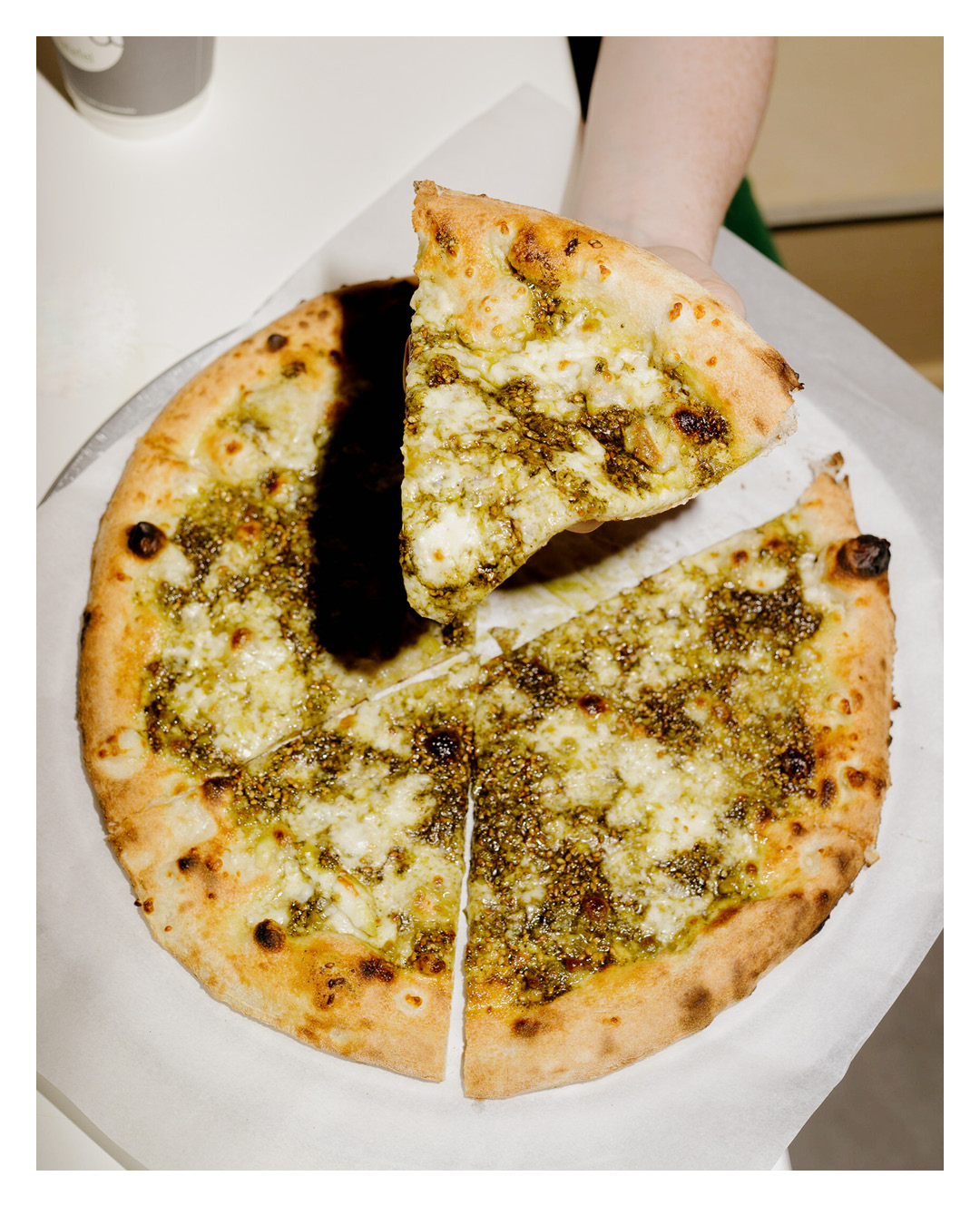
While this kind of flatbread is typically a breakfast food in its native part of the world, Za’atar gives more of a lunch feel. The spot opens from eleven to six Tuesdays to Sundays; perfect for a good lunchtime feed. This holds true whether you’re into early lunch, late lunch, or I-work-nights-so-eat-lunch-at-five luncher. Either way, this place will be the kind of lunch spot people seek out in no time.
Lamb Flatbread
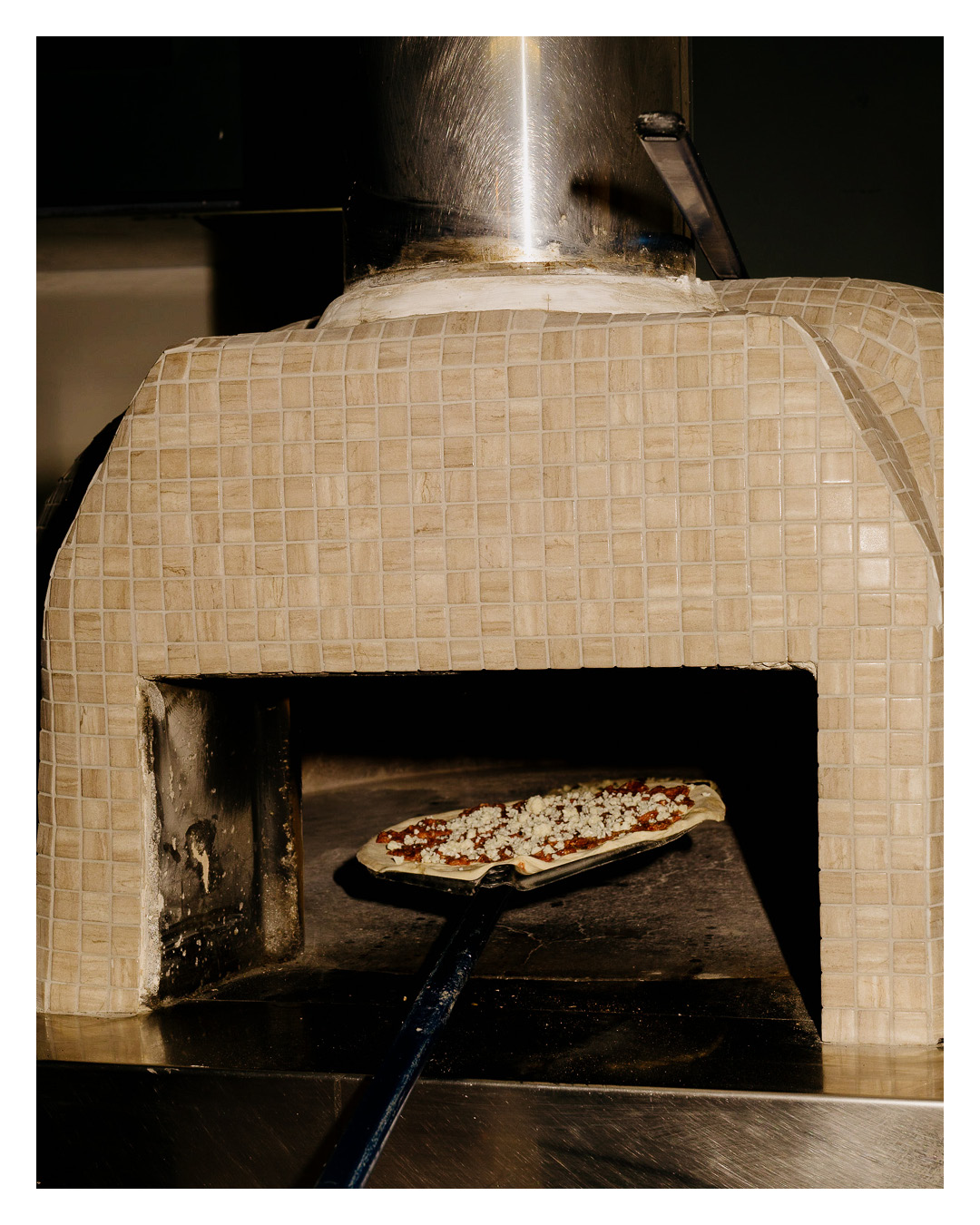
We focused our tasting on their manousheh, a traditional white flatbread – topped with herbs, meats, cheeses and sometimes sugary treats. The name comes from hand-pressed dips in the dough. These help to hold the toppings, and, while it’s not pizza, it provides similar, carb-charged comfort.
The team place a significant emphasis on the bread itself. They make their dough from ‘00’ flour from Naples. The team then leave it to rise for seventy-two hours, achieving ideal texture and flavour. As they say, they’re “proud of what we dough”. And they back up the pun with cold hard facts because the cust on everything we tried was impeccable. Truly. The woodfired brick oven and the diligent staff saw to that. The chefs cook their manakeesh and pizzas at 500°, which brings a delicious smoky flavour to the crust. This particularly complemented the lamb.
The common denominators of Middle Eastern flatbreads are ground lamb and za’atar. So we tried those exact two options. While the Za’atar was zingily and almost citrus-ly good, the lamb was the winner. It was a simple pleasure dish that was beautiful in its texture and flavour combo. The sliced owed its complex flavour to authentic traditionally cooking style. So perfectly slightly too big that you felt you were getting exceptional value at less than a tenner.
Cheap as Chips
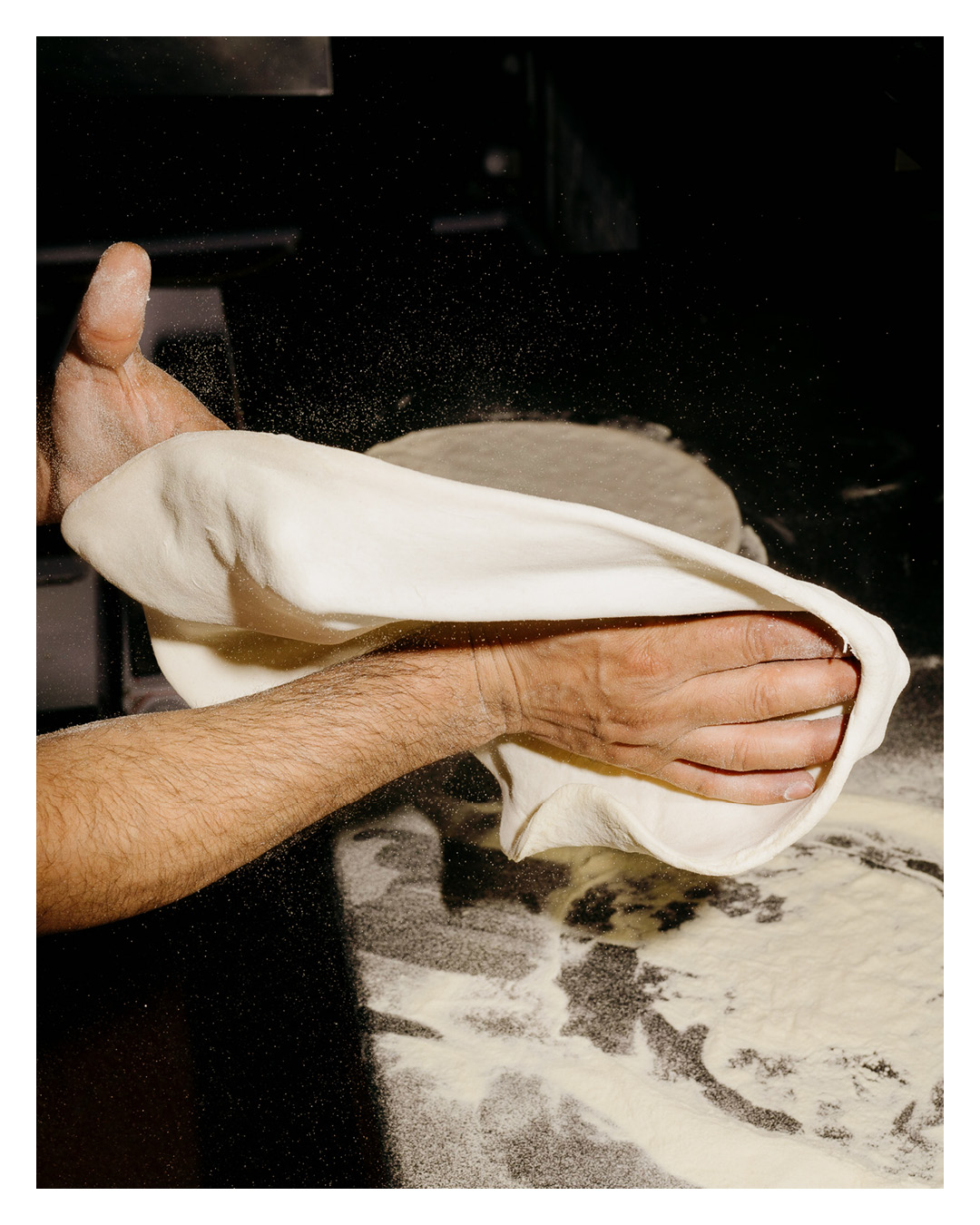
This is street food in Lebanon, but the Lebanese Bakery is not selling at a ludicrous price; whole flatbreads start at six quid. So yup, you can go hear and get a full-ass pizza and a drink with a tenner and still have enough leftover to tip the staff. Perfect if you’re a value hunter. Or if you just love an excellent bargain-to-taste ratio, this is a bucket list item that you should tick off at your earliest convenience.
Authentic as all Fudge
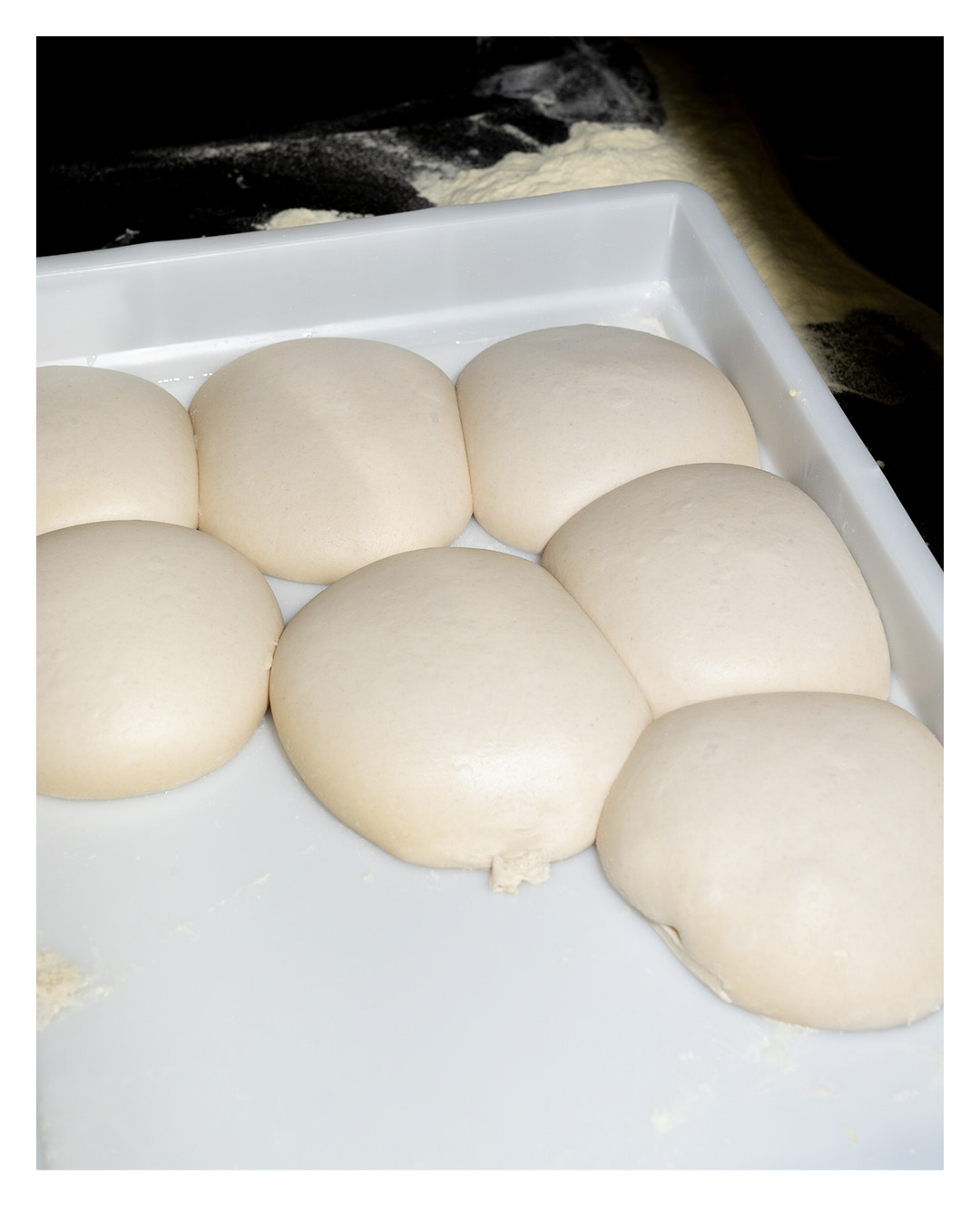
Za’atar is the first of its kind in Dublin, bringing an element of nostalgia to the Irish Middle Eastern community. The team source their za’atar and sumac straight from Jordan to provide the most authentic taste to their spice mix. Their house cheese blend is made up of a mixture of Cypriot halloumi, Italian Fior di Latte and Palestinian Akkawi cheese to give it the perfect flavour to melty, crispy balance.
They specialise in manakish. Very little is known about the OG version of this classic dish. But an Arab cookbook from around the tenth century mentions recipes for flatbreads with thyme and olive oil. Bear in mind that all these ingredients and techniques have been around since early times in Lebanon. Writer Fouad Kassab said, “It seems highly unlikely that these ingredients so destined to be together wandered the Earth lonely for long.” Because so little is known about its creation it could be suggested that it’s been longer than the written word. So when you tuck into a crispy slice at Za’atar, you are legit tasting the history of humanity in all its improbably permanence.
Uber friendly staff
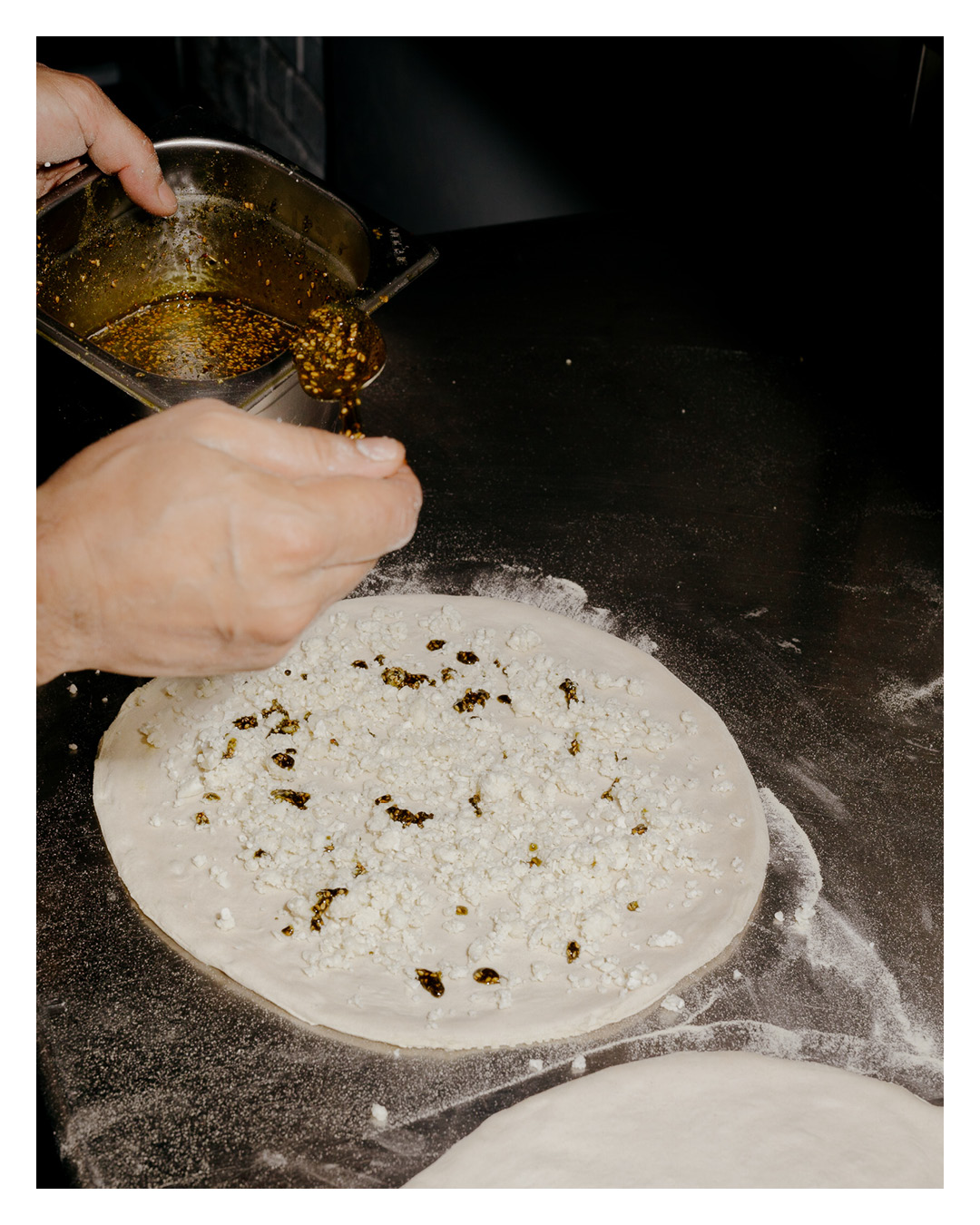
The team behind the counter were friendly and knowledgeable and went out of their way for us. When I ordered a drink they didn’t have in stock, they went down the road to get the bits they’d need to make it for me. That is real generosity you can’t fake it for the cameras. The lads talked us through the dishes. Told us what they meant in a way that showed a real passion for what they were creating. It’s heartening to see a team so at peace gearing up for opening week. They appeared to have enough faith in what they’re making to know that because they have built it, we will come.
Elsewhere on Char: Brunch is a Queer Space


